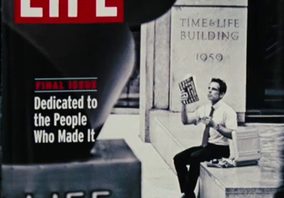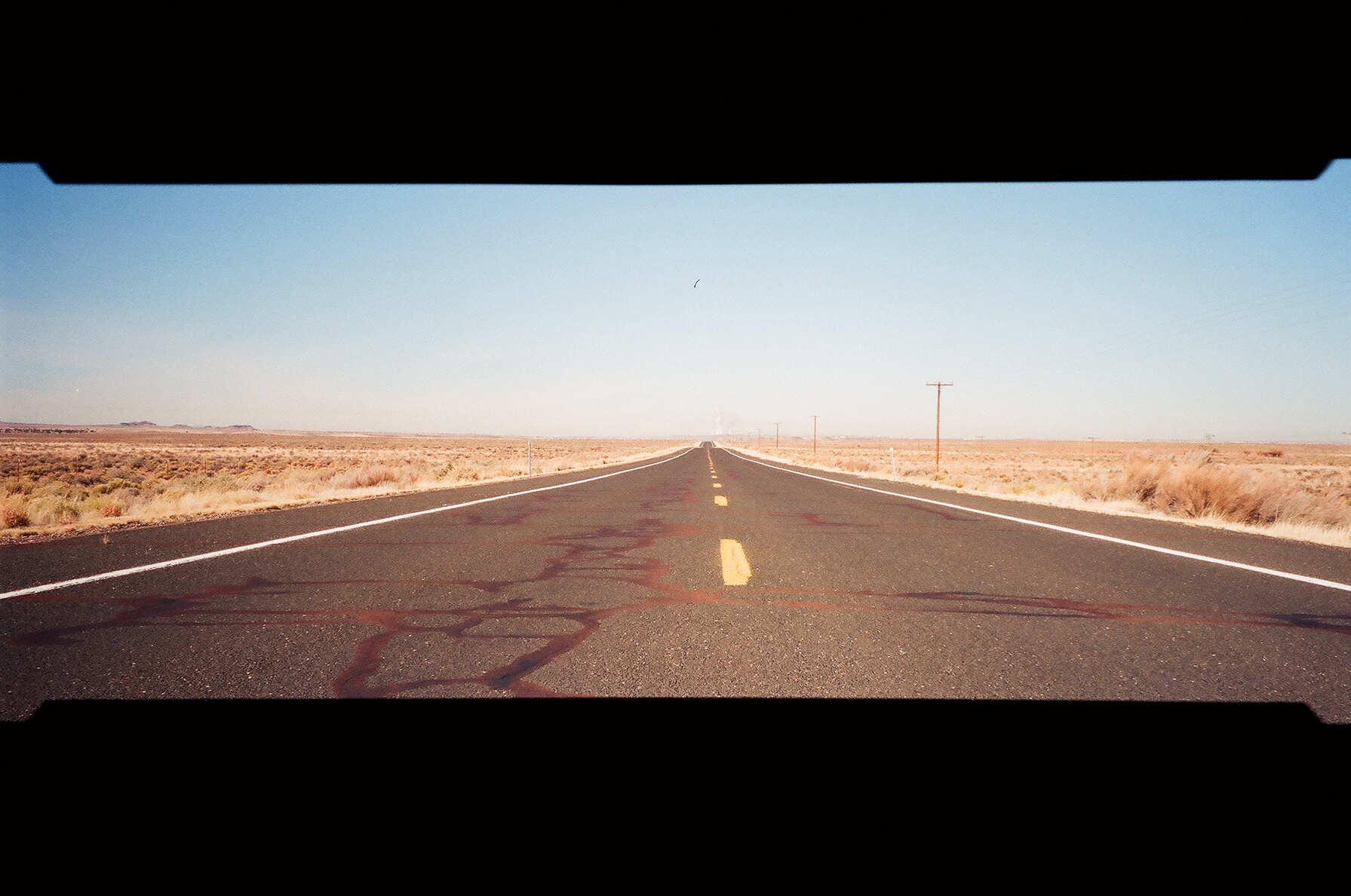If I like a moment, I mean me, personally, I don’t like to have the distraction of the camera, I just wanna stay in it.
Sean O’Connell, The Secret Life of Walter Mitty (2013)
In The power of now, Eckart Tolle says that in any given moment we have three options: remove ourselves from it, change it, or accept it totally.
Sometimes though the present moment is just too much for us, so we do what we can to overcome it. Tolle says that this is an insane way to live, because the present moment is all we have, which is all good and well for Tolle. He gained enlightenment on a park bench in Russell Square and has been euphoric ever since. Whereas the rest of us, for better or for worse, have to rely on modern technology to get a semblance of that same euphoria, which is where things become tricky. Often, technology owns us, instead of the other way round.
Capturing a moment
With our phones, we can capture and share any moment we ever experience. And, if we feel unable to live fully in a given moment, then we can always postpone it and then experience it later. Sometimes, we don’t always want to though. When my daughter was born with kidney failure, I kept a blog for the first two years of her life, because I couldn’t bear talking about it on the telephone to anyone. I read it the other day for the first time in ages and really didn’t enjoy remembering all the moments my memory has tidied away.
But, even when a moment is brilliant and we recognise its importance, we can risk not experiencing it at all, because we are trying to so hard to capture it. This is when we step back, hold up our phone, and miss it. A while ago, I wondered about how different my round-the-world-year would be if I were to experience now. I would be travelling with my phone, recording everything and uploading it. Would I really be experiencing it? And afterwards, could I relive what I didn’t experience? Or, would I retroactively experience something else altogether depending on how I curated all those captured moments online?
In À la recherche du temps perdu, Marcel Proust revisits his life to find meaning, and explores what he calls involuntary memory. Eating his infamous madeleine, the taste of which evokes his childhood, Proust slips out of the present and into the past. And, then of course the act of writing and musing on his past in order to find meaning in it, creates a new moment: the combination of the present moment of writing and the past moment which exists in memoir only – a simulacrum of the two moments which created it.
Imagine if he had had a whole Internet full of his memories to write his memoir from. And, what happens to us now when we can record every single thing we ever do, and what gets said and done to us?
Feeding the need
There are at least a dozen times a day when we are needled, when our needs are not met, and our bodies immediately react with the flight or fight response. Imagine being able to record and remember every single needle, every single moment when we felt a lack? Joe Dispenza says in Breaking the habit of being yourself that we will try to run from any emotion which is painful, because to look at it is too uncomfortable.
Amazingly, we can run away very easily with modern technology. We can alter our internal chemistry by laughing at a YouTube video, becoming fearful with the latest news on our social media feeds, or get into an angry or exciting Twitter conversation. The possibilities are endless and so our unwanted feelings seem to go away by these distractions. But, then we rely on these distractions – outside of us – so that we can feel better over and over again. And, often we are distracted by the angriest people who shout the loudest on social media, and who don’t make us feel better about ourselves or what is going on in the world.
Occasionally, though we have a breakthrough and experience catharsis, an emotional release, by living someone else’s story. Ultimately, this is why we love a good movie, a book, a meme. We find relief in someone else’s experience because it connects us to them, and also back to ourselves. We mirror each other.
Immersion
When we get immersed in a book, or online in a game, we get a new point of reference, and we use the world in the book or game as starting point, which frees us from ourselves. Normally, we are embodied, that is, we experience the world through our bodies and limited senses and then our brain interprets the experience in light of our past experiences. We pattern match any new experience to a similarly bad or good one that we have had before, and behave in a way that makes this new experience fit its predecessors. We never have a raw experience. But, in virtual reality therapy and in gaming, we can escape our embodiment and adapt to a new world, which potentially opens us up to raw experiences.
Research shows that computer games light up the part of the brain responsible for motivation and learning, and so games are being developed to help people with depression or who have suffered trauma, to train their brains to leave behind their thought patterns and develop new ones. Gamers can literally learn to lose themselves.
In the Gap
In his TED talk, psychologist Mihaly Csikszentmihalyi identifies that those people who are the most satisfied with their lives regularly engage in activities in which they lose themselves to bring about a state of flow.
In the language of meditation this flow is known as the gap, which is where our unbounded consciousness – the space between our thoughts and ego – lie. It is there where we find our pure potential and infinite possibility. Meditation guru davidji says we have all experienced the gap during those times we have dazzled someone in conversation, that moment when the roller coaster drops us into free fall, or when we lose ourselves in the one we love.
I find meditation incredibly difficult, but gaming less so, and it is with excitement I view the possibilities of technology to teach us how to truly connect to a moment in the right way. And this is why I used The Secret Life of Walter Mitty (2013) at the beginning of the blog. It got mixed reviews on its release but I love this film. For me, it is a gentle celebration of living in the present moment and connecting with who you are.
Walter Mitty lives a grey life as a negatives manager at photo magazine whilst in his head he lives out the most colourful fantasies, until the day his job is threatened and he is forced to engage with life instead. The film’s colour palette saturates, causing Mitty’s grey life to become as colourful as his fantasies because he has opened himself up to the present moment and all it has to offer.
And, this cinematic devices captures perfectly what happens when you tune into your own life in the gap or follow your bliss as mythologist Joseph Campbell put it. Mitty also gets the girl, because instead of just imagining, sometimes hilariously, himself in relationship with her, he learns to stays present in his own life long enough to discover the magic of being all of himself, which is what life coach Martha Beck identifies as the key: Being loved is all about loving yourself. And, being fully present in a moment, paradoxically, is about letting go and losing yourself in it, whether you are holding your phone or not.
I have always believed that technology augments us, and social media reflects us, so it makes perfect sense that the digital landscape has the potential to teach us how to be more ourselves, more human, in every moment of our lives. Perhaps technology doesn’t own us after all.







I do like the smell of a simulacrum in the morning. Oh yes. And thank you for this blog. It takes me places. And that is what all good writing does. Now, the future, the past , the eternal present and….. everything in between.
Thanks John! I am glad it takes you places, I know it did me as I was writing it. I love your idea: blogging = time travel. Just fabulous and true!